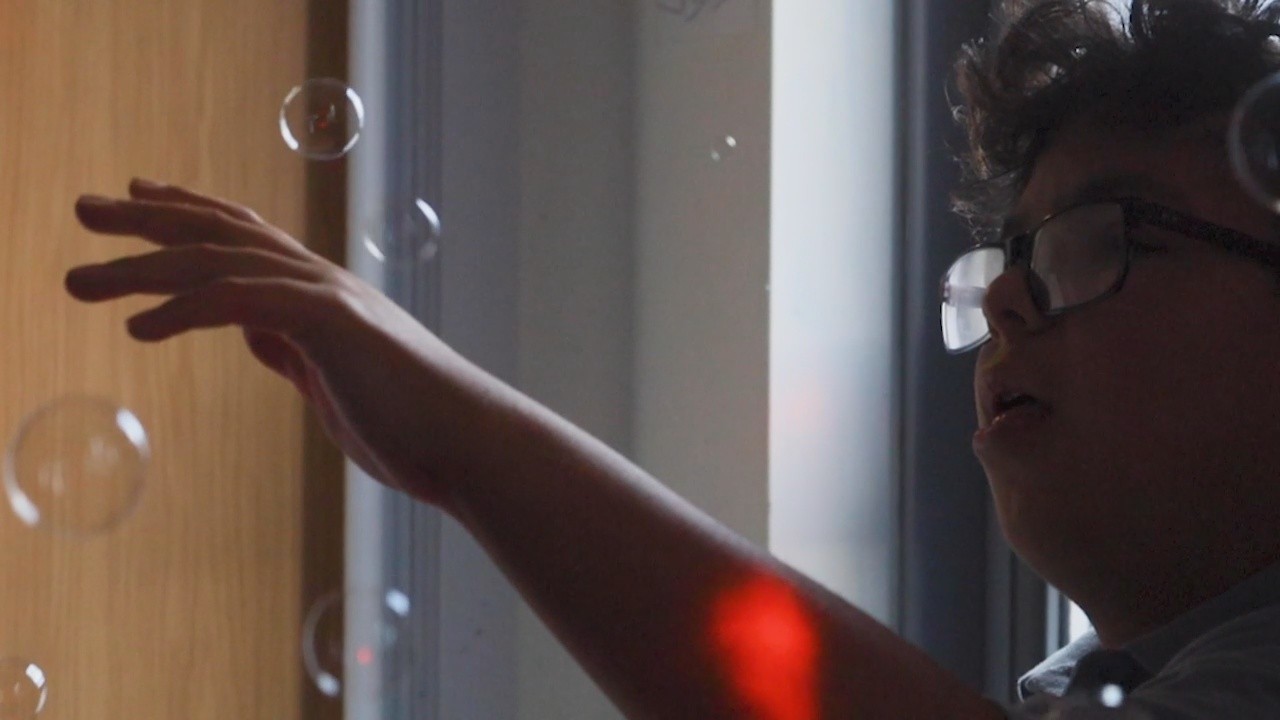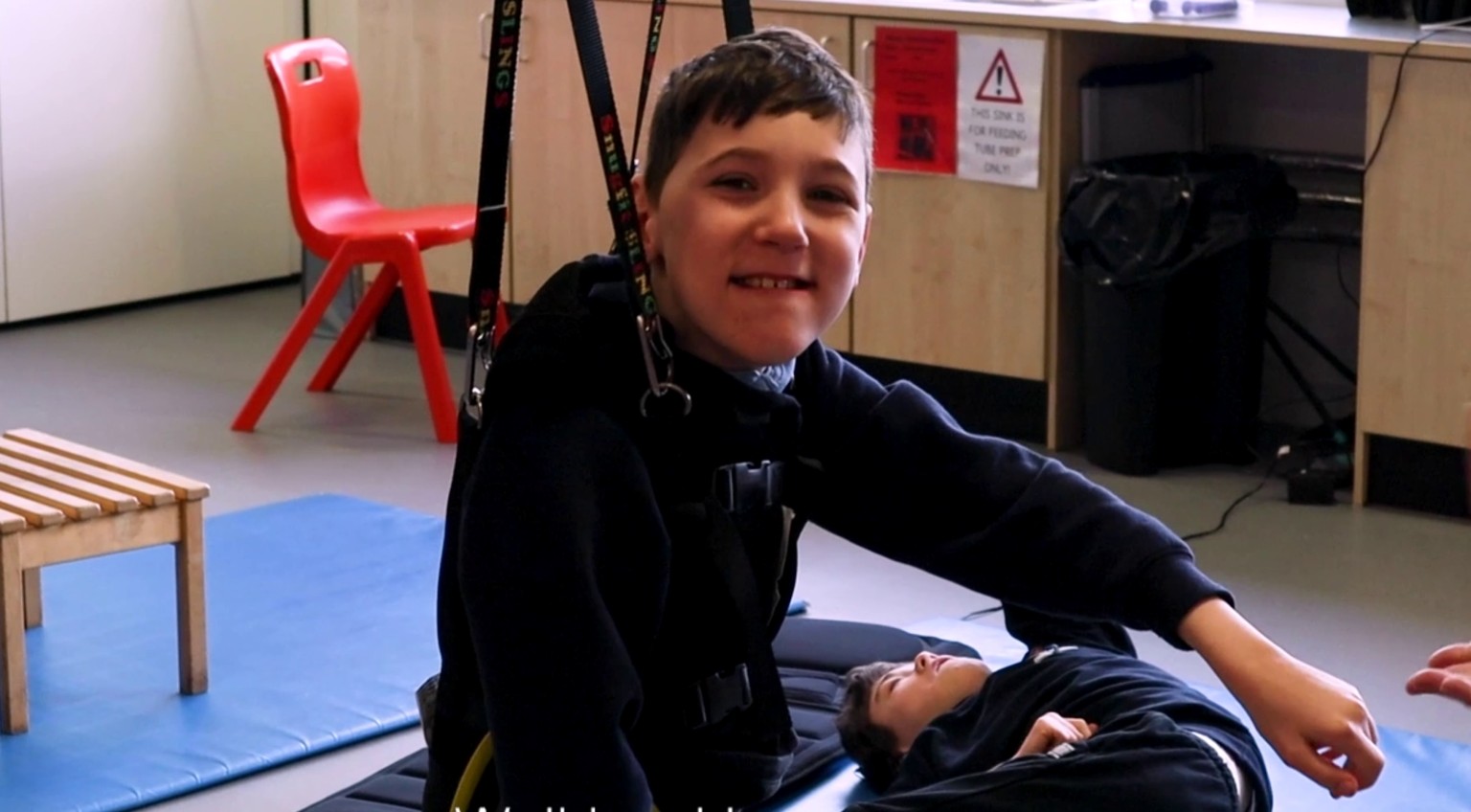This website uses Google Translate
You cannot use this feature without first accepting 3rd Party Cookies.
This website uses Google Translate
You cannot use this feature without first accepting 3rd Party Cookies.




You cannot use this feature without first accepting 3rd Party Cookies.
You cannot use this feature without first accepting 3rd Party Cookies.
Foxfield School SEND Information Report 2024/2025
Whole School Approach
Foxfield school is a designated school for pupils with severe learning difficulties or profound and multiple learning difficulties. Therefore, all pupils have an Educational Health and Care Plan (EHCP).
How will I know how my son / daughter is doing and how will you help me to support my child’s/young person’s learning?
Foxfield is strongly committed to a partnership with our parents and carers. The school and has a variety of arrangements in place to maintain regular contact with parents and carers to discuss pupils’ progress and how best to meet their needs.
Below are some of the ways we try to achieve this:
What support will there be for my son / daughter’s overall well being?
There is an excellent level of pastoral, medical and social support for all pupils at Foxfield and their families. This includes:
What specialist services and expertise are available at or accessed by you?
All of the teaching staff at Foxfield and the Teaching Assistants complete ongoing training in the meeting the needs of pupils with complex and profound learning difficulties. This covers current knowledge and best practice in education, care and meeting pupils’ health and medical needs. Individuals or groups of staff will undertake further training as required to ensure that they have the particular skills and knowledge needed to work with the particular pupils in their care at that time. This additional child focussed training can target skills and knowledge needed to effective meet the needs of certain pupils who have specific educational, behavioural, communication or medical needs
The education staff within Foxfield work in close partnership with a wide variety of other professionals to ensure that each pupil and their family are offered the best multi professional service possible. These other professionals include:
Professionals based in school on a permanent full time or part time basis
Visiting professionals who come into school regularly
What training have the staff supporting my son or daughter with SEND had or are having?
Foxfield School believes it is essential that all of the staff have the relevant skills and knowledge necessary to meet the various needs of each pupil and to provide current best practice. The School has been assessed as an Investor in People for over 20 years in recognition of its commitment to providing ongoing training for its staff.
Below is simply a summary of some of the training that the whole staff or particular members of staff have undertaken over the last two years:
All staff receive regular and ongoing training on:
Additional training undertaken by individual member of staff or specific groups of staff
How will my son / daughter be included in activities outside the classroom including school trips?
Foxfield School is a highly inclusive provision. All pupils, regardless of their special needs or disabilities are included in activities both inside and outside the classroom. A pupil’s medical needs would not prevent them from undertaking educational visits, day trips with the school etc. All pupils can also participate in the extra curricular activities offered by the school including after school clubs and the residential trips that are offered annually. The school works in close partnership with colleagues from Health to plan for pupils with complex medical and health care needs so that they can participate in the activities offered to other pupils at Foxfield, including addressing particular staffing issues where necessary.
The same inclusive approach generally applies to those pupils who demonstrate particularly complex and challenging behaviours. Such pupils, whose behaviour can be very disruptive, violent, self injurious or hazardous to themselves and others, are still included wherever possible in all that Foxfield can offer. Classes that meet the needs of such pupils will still participate in activities outside the classroom and school and the pupils gain a lot from experiencing and working in different environments.
The only exception to this inclusive approach at Foxfield is where staff genuinely believe that a pupil would be at serious risk if they were to participate in an activity outside school. Where this is the case every measure will be made to try to minimise the risk, including negotiating with parents, carers and other professionals to see what realistic, practical measures can be put in place to enable that pupil to participate. This will always be on a case by case basis but the school will do whatever it can to enable to pupil to safely participate.
The following genuine examples illustrate the solutions that have been put in place to enable particular pupils to be included in activities outside school, or where the risks were considered too great.
1. Issue: Pupils with profound and multiple learning difficulties join a class but have life threatening conditions and parents are concerned about their health deteriorating suddenly and them being far away from familiar medical services
Solution: The class’s residential trip was simply planned and undertaken at an Outdoor Centre within Wirral to enable the children to be taken to the local, familiar hospital if an emergency arose
2. Issue: A pupil wants to be included with his class on a residential trip in North Wales but the Health Care Assistant who works with him in school cannot do so overnight or outside the Wirral boundary.
Solution: Arrangements were put in place and agreed with the boy’s parents that the School Nurse and another medical professional would travel daily to the residential centre in Wales to undertake the boy’s necessary health checks. School staff had some additional training so everyone was confident in meeting the boy’s needs safely and adequately throughout the week.
3. Issue: A pupil wants to attend a residential trip. He is Oxygen dependent overnight but not during the normal school day
Solution: Specific school staff going on the trip are trained in setting up and administering the boy’s oxygen overnight. The equipment needed is delivered to school and taken to the centre by staff but the oxygen requires specialist transport so arrangements are made for it to be delivered directly to the residential centre and collected from there at the end of the trip.
4. Issue: A pupil is known to be very reluctant to eat or drink anything outside familiar surroundings. The school and his parents want him to join his class on their 5 day residential trip. Staff plan and negotiate with his parents how to manage the risk of him not eating of drinking while away from home.
Solution: Agreement is reached that staff will monitor the boy’s intake very carefully while he is on the trip. A risk assessment plan is agreed by which the parents will be informed of their son’s intake each day and a decision will be made for him to come home early if he is neither eating nor drinking.
On the day of leaving his parents ensured he had plenty to eat and drink before leaving home. He did not eat or drink anything more that day while at the residential centre and parents were informed. An agreement was reached that parents would come and collect him if the same happened throughout the second day. School staff did all they could to persuade the boy to take in fluids and food and by the Tuesday evening he began to do so. He therefore stayed and completed the trip with all his classmates.
5. Issue: A pupil displays very violent outbursts on occasions at home and in school. He is assigned extra staff support in school and his behaviour is well managed. The frequency of incidents has reduced but they still occur at least weekly. During incidents in school however, due to the size of the boy and the degree of aggression he displays, staff from other classes regularly have to come to assist in supporting the boy and his classmates until it is safe for them to leave. The class team have to plan carefully how to enable this boy to be included in activities outside of school and on the class’s residential trip.
Solution: The class staff become very skilled at understanding the boy’s mood, and some of the triggers for his aggressive behaviours. If in any doubt about his safety or that of those around him they restrict their normal educational visits to the local community so that the boy can still participate but additional staff support from school can come to the scene to provide assistance if necessary.
After negotiations with his parents an agreement is reluctantly made that it would be unsafe for all concerned for the boy to attend the residential trip as his anxiety would be heightened in unfamiliar surroundings, which is likely to lead to outbursts of violent behaviour and there would be no other staff on call who could come to offer assistance during any incidents. The boy therefore remained in school for the week with favourite staff working with him and a programme of alternative, enjoyable activities was provided for him.
How accessible is your school environment?
Foxfield School moved into a new specialist school building in 2015. This should be fully accessible to anyone who has mobility problems, is a wheelchair user, has auditory or visual problems or has other disabilities. There are adequate disabled toilets and changing facilities throughout the building.
The school successfully meets the needs of pupils with complex or profound and multiple learning difficulties whose first language is not English. Where needed advice and training for staff is provided by a translator or from another specialist service. Parents can be provided with school reports and other key documents in a translated format and a translator can be used to support them in meetings with school staff.
How will you prepare and support my son or daughter to join your school, transfer to a new setting or to the next stage of education and life?
The school has a variety of systems in place to support pupils during the important times of transition into or from Foxfield School. These include:
A highly detailed transition process to prepare new pupils and their parents and carers for the transfer to Foxfield. The Headteacher invites parents in for lengthy individual meetings with him to discuss their child and explain how Foxfield would meet their needs, along with giving the parents or carers a tour of the school.
Staff from Foxfield visit feeder schools to spend time with prospective pupils and staff who know the children well.
The Headteacher and our transition leader meet groups of parents in the feeder schools to explain the transition process, discuss shared concerns and answer any questions
Pupils come from the feeder schools on a series of half day or full day visits to Foxfield, supported by staff from their primary schools. They get to tour the school, meet staff and other pupils, learn where their classroom will be etc.
All new parents are invited to attend a meeting towards the end of the summer term at which the classes their child will be a part of are explained and those parents get a chance to meet and speak to their child’s new teacher.
Beyond the initial transition into Foxfield, a central part of the school’s curriculum from 11-19 is independent living skills. This develops each pupils skills and understanding as far as possible for them to be more aware and self reliant in adult life beyond school and less dependent upon others. This crucial area of learning is enhanced from 14 onwards by the introduction of Foundation Learning programmes which teach essential key skills along with personal development and vocational skills.
The school’s Transition Manger and Deputy Head work very closely with pupils, their parents or carers and other partner services to explain, consider and plan a transition to an appropriate post school destination. Many pupils progress onto different types of further education or training and the transition to this is planned to best meet the needs of each individual. For some pupils this may include accessing continued support from health or Social Care Services.
For pupils progressing onto local Further Education Colleges a thorough transition process is put in place including the sharing of a wide range of relevant information between the school and college as well as pupils undertaking supported visits to the college during their last year in school
How your resources are allocated and matched to my son / daughters needs?
Foxfield School is a Local Authority maintained special school. As such the LA control admissions to the school and delegate resources according to its local funding formula for High Needs Provision. The school receives a delegated budget that combines an element for the number of places available at the school along with an element of top up funding based on the actual places provided at that time for pupils with different degrees of need, for example places for pupils with Profound difficulties are funded at a slightly higher top up level than places for pupils with severe learning difficulties.
The School’s Governing Body then has to manage the delegated budget annually in a way that best meets the needs of all of the pupils in the school. Fairness, equality of opportunity and appropriateness of resources are key issues that Governors have to consider in setting their annual budget, the large majority of which is spent on staffing.
At Foxfield the central consideration is to ensure that each child is in a safe and suitable class that is appropriately staffed and has the educational equipment and resources required to meet each pupil’s needs. Foxfield differentiates its class sizes and the staff ratio within these to ensure that they are appropriate for meeting the needs of all of the pupils. There is not a standard class size or staff:pupil ratio across the school and this ensures that the staffing resources are allocated to best match the needs of each pupil at the school. The Governing Body annually considers the range of class sizes and their staffing, along with ongoing consideration and planning of the overall staffing and other resource required and used by the school.
Where Foxfield receives additional targeted funding for specific purposes, including additional funding for a pupil to receive 1:1 Teaching Assistant support, Pupil Premium funding for pupils in receipt of free school meals or for Looked After pupils, this funding is used to provide additional support for the intended beneficiaries.
How is the decision made about what type and how much support my son / daughter will receive?
Wirral Local Authority decides, in consultation with parents, carers and school staff, which pupils it places at Foxfield School. It also assesses the needs of the pupils and specifies these in the child’s Statement of SEN or Education Health and Care Plan. The Local Authority would then place a child at Foxfield in the belief that the school had the resources required to meet their needs.
Once at Foxfield the school staff takes responsibility for planning the class groups, the staff ratio and the physical and educational resources required by the pupils. They also plan to meet the needs of each pupil within the resources that are available and in response to the requirement of the child’s Statement of SEN or Education, Health and Care Plan.
Staff actively and regularly consult parents and carers along with a range of other professionals who know the pupils to try to put the best plans and provision in place to support each child. Parental views and input is encouraged throughout a pupil’s time at Foxfield and staff specifically ask parents and carers for their views on the plans and provision made by the school as a part of the annual review process
Who can I contact for further information?
The best first point of contact with the school would always be the Headteacher. He can provide you with information about the school and discuss if and how Foxfield could meet your child’s needs. The Headteacher can provide lots of information about the school in written form or he can direct people to parts of the school’s website. He also encourages potential parents or carers to visit the school to see its provision and to learn more about the work of the school, its pupils and staff.
Once a child has joined the school parents and carers are still welcome to contact the Headteacher or other schools leaders at any time. They are also encouraged to have an ongoing dialogue with their child’s main teacher through the Home –School Chat Books. This enables parents and staff to share views, ideas and questions about the provision planned and made for a pupil and to how successful it is being in meeting his or her special needs.
The health professionals based at Foxfield can all be contacted directly through the school or contact details can be passed on for parents and carers to get in touch with one of the other professionals or services that work with the school.
The Local Authority’s Children and Young People’s department should be contacted regarding any specific issues concerning the process of assessment and identification of Special Educational Needs, the production of a Statement of SEN or a Education Health and Care Plan, or about questions regarding the funding of provision at the school.
Can staff get extra help from experts outside if they need to? (e.g. advice and training on medical conditions)
As described previously, Foxfield School contains a multi professional team who work closely and in conjunction with a wide variety of other professionals and services to ensure that that the best possible planning and provision is in place to meet each pupil’s needs. School staff actively seek additional advice, support or training from these external experts and professional partners and use the information gained to improve the provision on offer. School staff also believe however that often the greatest experts on a child are their parents and carers and so seek and equally value the extra help and information that they can provide.
To be reviewed July 2025